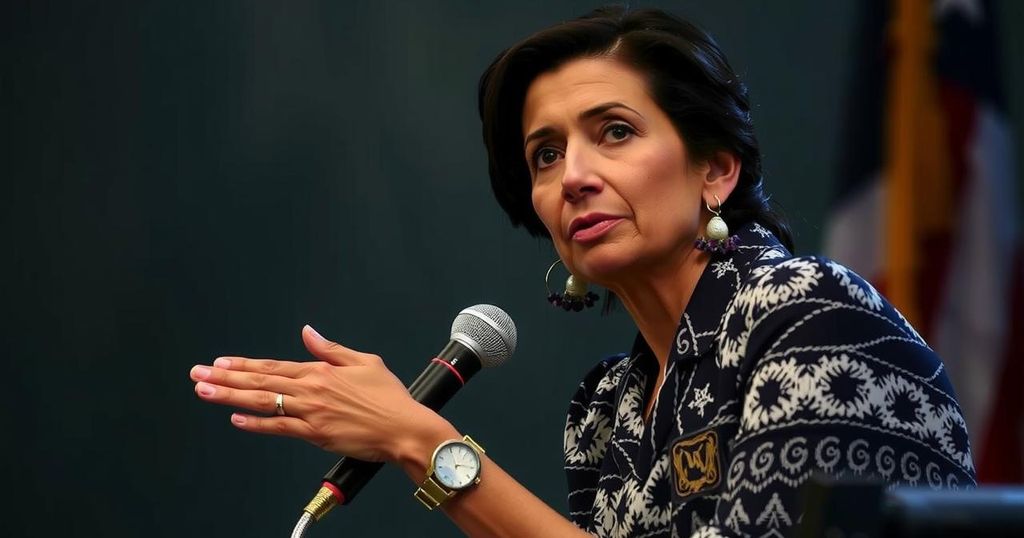Tulsi Gabbard’s nomination by President Trump to lead U.S. intelligence has raised alarm due to her past meeting with Assad and statements on Ukraine. Critics worry her views may hinder cooperation with foreign allies, while Trump defends her military background. Her confirmation will be scrutinized by the Senate, focusing on trust and reliability in U.S. intelligence efforts.
Former congresswoman Tulsi Gabbard has come under renewed scrutiny following her selection by President-elect Donald Trump to lead the United States intelligence community. Her previous meeting with Syrian President Bashar al-Assad in 2017 and her contentious remarks regarding Russia’s military actions in Ukraine have raised concerns among former national security officials. If confirmed as Director of National Intelligence (DNI), she will oversee 18 U.S. spy agencies and advise the president on critical intelligence matters. Critics have expressed apprehension about Gabbard’s anti-war stance and strong opposition to U.S. involvement in international conflicts, which some believe could undermine U.S. intelligence sharing with allies.
Gabbard’s political history includes controversial positions surrounding American foreign policy. Her January 2017 visit to Syria, intended as a fact-finding mission, sparked outrage when she questioned U.S. assessments regarding chemical weapon attacks conducted by Assad’s regime. Furthermore, Gabbard has made statements during the ongoing Ukraine conflict that align closely with Russia’s justifications for its actions, leading to accusations of her repeating Russian propaganda. Prominent political figures and officials, including former Senator Mitt Romney, have publicly criticized her statements and potential appointment as DNI.
Despite Gabbard’s contentious record, President Trump defended her appointment, asserting that her military background and past service would benefit the intelligence community. He remarked that she “will bring the fearless spirit that has defined her illustrious career” to the role. Nonetheless, the nomination faces significant hurdles, as key allies have voiced concerns about trust and cooperation with U.S. intelligence under her leadership. Some, however, maintain that the longstanding alliances would not change based on one individual’s stance.
The Senate’s evaluation of Gabbard’s confirmation is expected to be contentious, given her unorthodox views regarding global political figures. Senators from both parties have indicated they require further clarification on her past comments before proceeding. The outcome of this political debate will ultimately influence the relationships and operational strategies within the U.S. intelligence community.
Tulsi Gabbard has been a controversial figure in American politics, known for her anti-war stance and criticism of U.S. foreign policy. Her 2017 visit to Syria, where she met with Bashar al-Assad, raised alarms about her judgment regarding international alliances and humanitarian principles. Her comments during the invasion of Ukraine have led to further allegations of her siding with Russian narratives, highlighting concerns about her suitability as Director of National Intelligence, a role requiring trust and reliability to maintain foreign relationships. As the DNI, Gabbard would be tasked with overseeing intelligence operations crucial for American national security, a position many fear could be compromised by her past statements.
In conclusion, Tulsi Gabbard’s nomination as Director of National Intelligence has ignited significant debate regarding her political history and the potential risks associated with her governing philosophy. Critics caution that her selection could jeopardize U.S. intelligence operations and cooperation with allies, while supporters believe that her experience might bring valuable perspectives. The forthcoming Senate confirmation process is likely to scrutinize her past views and their implications for U.S. national security interests. As the political landscape continues to evolve, the ramifications of her appointment will be closely monitored both domestically and abroad.
Original Source: www.bbc.com






